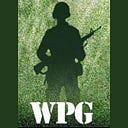He Kept Our Hearts in San Francisco
by Doug Bradley
Anthony Dominick Benedetto, known to the world as Tony Bennett, died last week, leaving the Great American Songbook minus one of its most incomparable interpreters. Luckily for us, Mr. Bennett’s voice, technique, philanthropy, and legacy will endure for generations.
Much has been written about Tony Bennett’s impact, his battle with Alzheimer’s, his military service, and his impeccable career. And, of course, his signature song, “I Left My Heart in San Francisco,” written by George Cory and Douglass Cross. But what’s missing I think is an appraisal of that song’s impact and resilience for the many U. S. military personnel like me who left their heart in San Francisco, or more precisely, nearby Travis Air Force Base, when they left for service in Vietnam during the war.
At first, U. S. soldiers were transported by ship to Vietnam. But as the war intensified in the mid 1960s and the need for more troops rapidly escalated, air transport to Southeast Asia became essential. Travis would soon become known as the “Gateway to the Pacific” for its role as the principal military airlift hub in the western United States.
That’s how I went over and back, departing Travis in November 1970 and returning to that very same place 365 days later in November 1971. At that time my Great American Songbook consisted of more Dylan, Hendrix, and Aretha than Tony Bennett. But that song, and Tony Bennett’s voice, echoed in my year-at-war ears, promising a hope, maybe even a guarantee, I wanted fulfilled.
Craig Werner, my friend and co-author, discovered this resilience about “I Left My Heart in San Francisco” when we were interviewing hundreds of Vietnam veterans for We Gotta Get Out of This Place: The Soundtrack of the Vietnam War. Older veterans in particular — career guys like Marty Heuer, Dick Moser, Ray Janes, and others — retained a deep affection for pop standards. Patricia Warner, whose three decades as a Navy nurse included service aboard the USS Sanctuary, a hospital ship located off the coast of Da Nang, summed up the feelings we heard from scores of vets:
“The Golden Gate Bridge, the good times we had in San Francisco before we left for duty overseas…all that (and more) is in ‘I Left my Heart in San Francisco.’”
Of course, Vietnam wasn’t on anybody’s radar in 1962 when the song was popularized. But its connection to soldiers and service can’t be overlooked. The song’s writers, Cory and Cross, both grew up in the Bay Area and met in the U. S. Army in 1948. They wrote the song in 1954 as a gesture to their home.
And then the song’s ultimate interpreter? Tony Bennett served in World War II, his life irrevocably changed by the ugliness and brutality of war. “A front row seat in hell” is how he described his service. Bennett could very well have been a PTSD veteran himself, like my World War II dad and millions who endured the horrors of that conflict.
So, maybe it’s pure conjecture on my part. But the veteran in me can’t help but think that three different veterans inserting themselves into a song about leaving and, hopefully, coming back is more than accidental.
Listening now, Tony Bennett’s voice still reassures. I’m back on that runway at Travis, boarded on a full, chartered DC-8 airliner for the flight to Vietnam. As I take in my last glimpse of the United States, praying it’s a bookend for my tour of duty in that Southeast Asian war, I hear a voice that is timeless. Tony Bennett singing “I Left My Heart in San Francisco” tugs at my heartstrings, conveying deep emotions and telling a vivid story. Reassuring this soldier that when he comes home to San Francisco, its “golden sun will shine for me.”
And I’ll be back.
Grazie, Anthony Dominick Benedetto.
About the Author: Vietnam veteran Doug Bradley is the author of Who’ll Stop the Rain: Respect, Remembrance, and Reconciliation in Post-Vietnam America, co-author with Craig Werner of We Gotta Get Out of This Place: The Soundtrack of the Vietnam War which was named best music book of 2015 by Rolling Stone magazine, and DEROS Vietnam: Dispatches from the Air-Conditioned Jungle now available as an audiobook.
